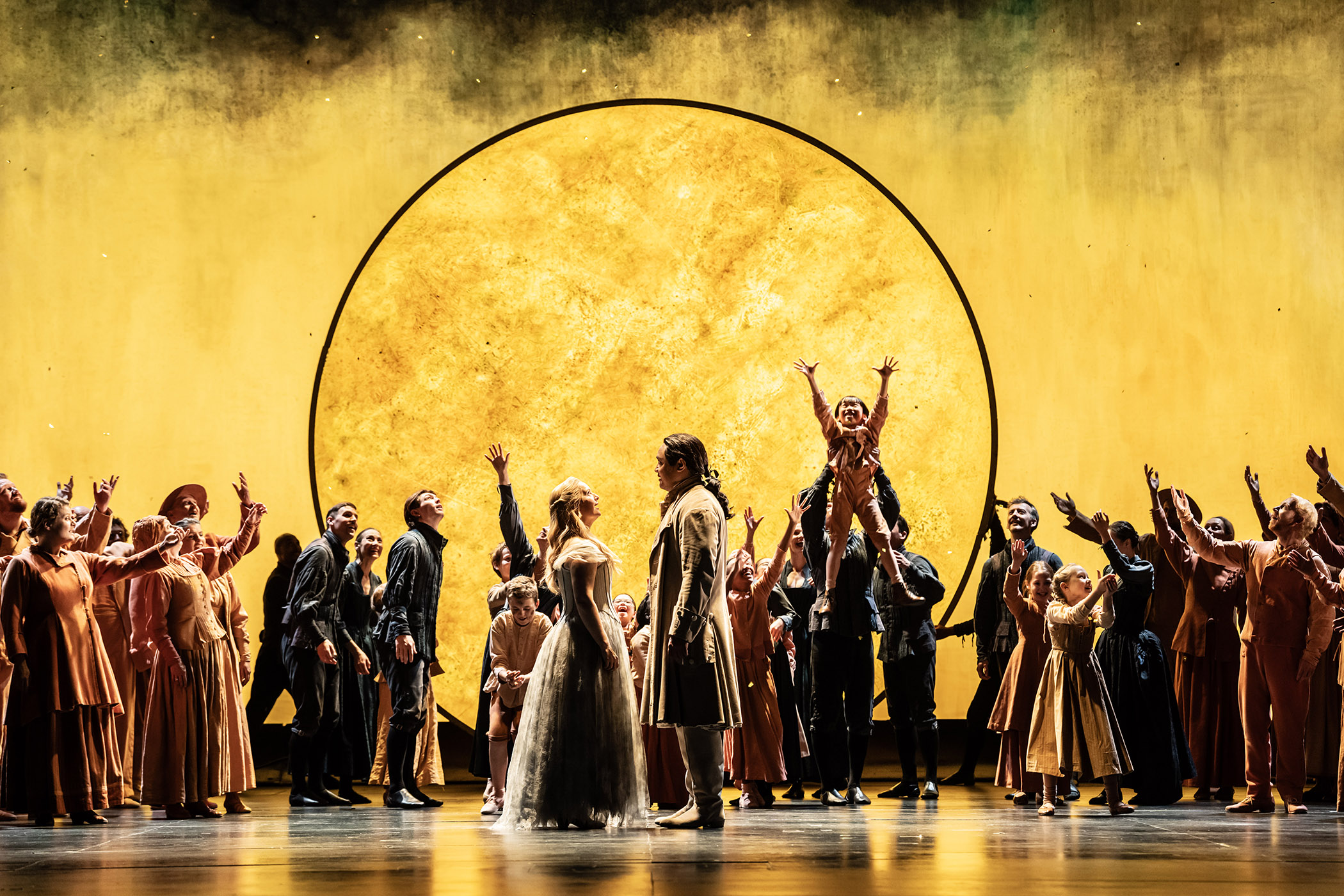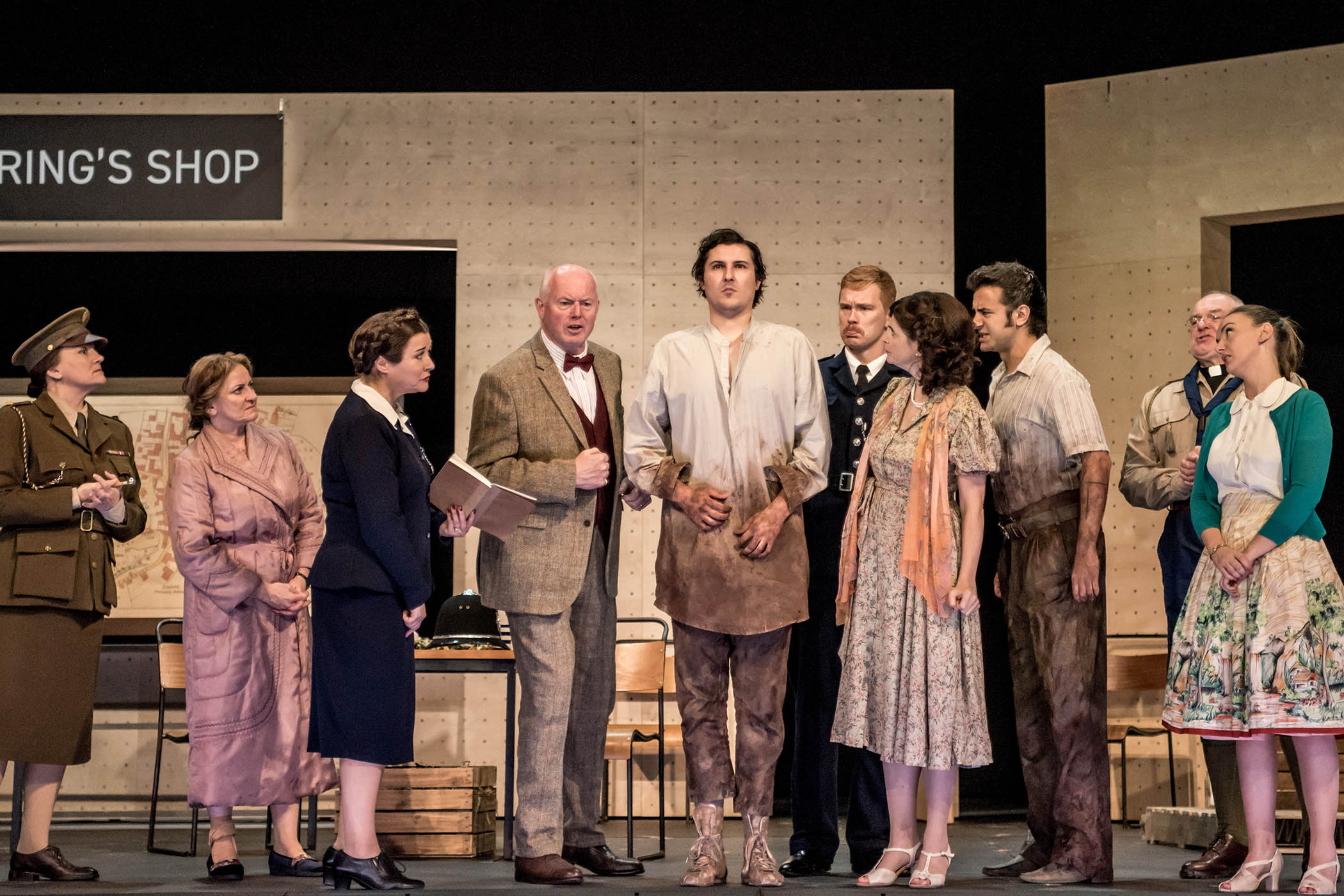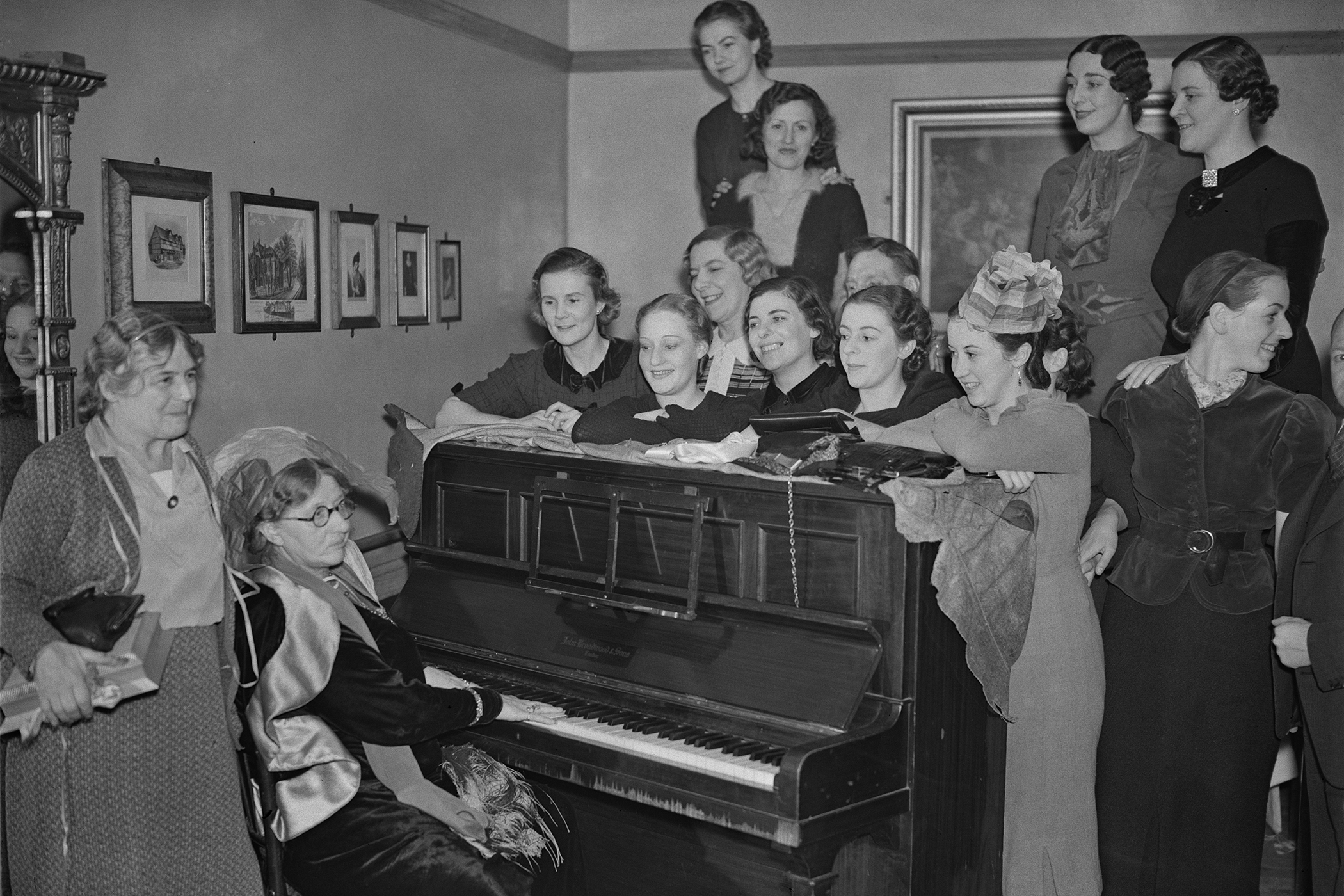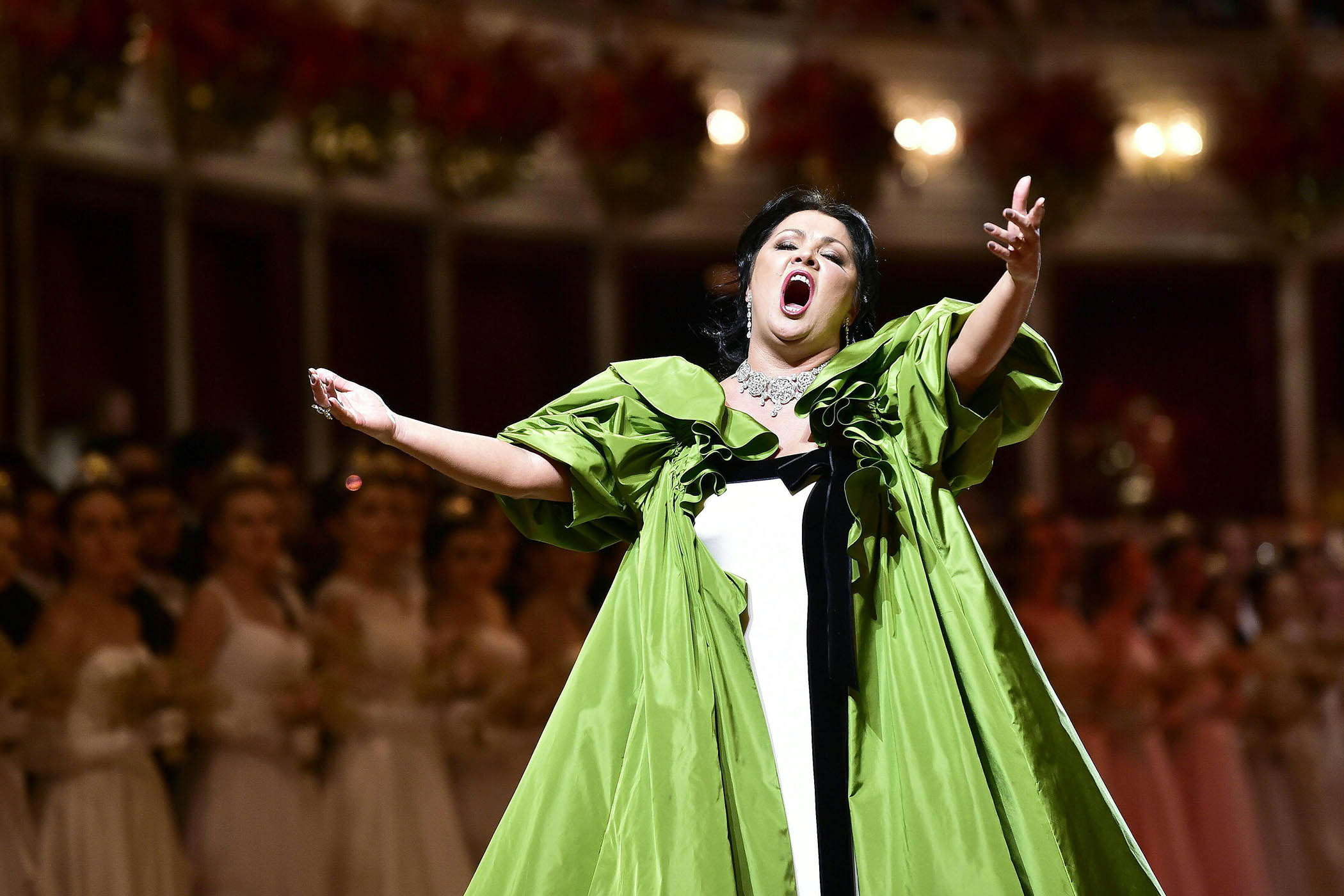As the stuffy postwar England enshrined in Albert Herring (1947) recedes, so Benjamin Britten’s comedy expands in radical subversion. Much loved by many, the work also suffers from a mawkish image. Britten and his librettist Eric Crozier depicted a village life governed by men in uniform – vicar, mayor, policeman – and women with titles: ladyship, teacher, shopkeeper. Rural Suffolk had yet to encounter the blow-ins, second-homers and migrant workers who would overturn the chessboard.
Whatever complexities such change has brought about in real life, it frees Britten’s oddball masterpiece to be what it is: a sharp, at times merciless, satire about an oppressed outsider who comes of age. English National Opera (ENO) has now staged it for the first time.
Antony McDonald’s witty production, conducted by Daniel Cohen, is shared between the London Coliseum and the Lowry in Salford, a debut for ENO’s new partnership with Manchester. The brief run, two nights in each venue, smacks of shortage of funding, if not lack of confidence about the box-office appeal of this work.
Britten, who had already written Peter Grimes, was ahead of his time in tackling issues of sexuality and gender, cruelty and prejudice. In this tale based on Maupassant, all life is explored. (Maupassant put it perfectly: “When you know all the windows in a street, each one of them interests you and puzzles you more than a whole street in Paris.”)
Loxford’s May queen must be a girl of virtue. There being none available, they elect shy and hapless Albert, who today would have been sent off for early diagnosis. Loosened by the effects of his spiked lemonade, he finds liberation and we all cheer, if uneasily.
Would ENO’s staging revert to cosy 1940s type or forge forwards? With outstanding playing from the orchestra and a vocally strong cast, McDonald, who is also the designer, manages both. Sets are modest but effective: two panels form a backdrop, with large cut-out windows. We know whether we are in Lady Billows’s house or Mrs Herring’s shop by signs that tell us so. A few retro plywood chairs, low tables and a blackboard are sufficient as props.
Each member of the ensemble has comic chops, led by Caspar Singh, touching and funny in the title role. When he folds his tall frame under the table, recoiling at the horrors of being crowned May king, we laugh with tears in our eyes.
Emma Bell whoops deliciously in her outrageous coloratura outbursts, playing Lady Billows in Land Army khaki. She and her sidekick Florence Pike (Carolyn Dobbin) bring battlefield ferocity to the organisation of a village fete. Mr Gedge the seedy scoutmaster-vicar (Eddie Wade), urges sweets on naughty young Harry (Lucien Flutter). Mark Le Brocq creeps and sneaks as Mr Upfold, the mayor. Two ENO Harewood artists, Dan D’Souza and Anna Elizabeth Cooper, excel as the lovers Sid and Nancy.

Lucy Crowe and Amitai Pati, centre, star in the Royal Opera’s ‘somewhat earthbound’ The Magic Flute
All took their moments in the limelight with style. Written for chamber orchestra, the score ripples with bells, chimes, whistles. Solo viola, alto flute, bass clarinet and cor anglais provide a melancholy undertow, beautifully played here. Every bar demonstrates the glories of Britten’s eclecticism – a habit he likened to a bee dipping from flower to flower to sample the best.
In his barely credible fluency, Britten is sometimes compared to one of his musical gods, Mozart. The Royal Opera has revived The Magic Flute (Die Zauberflöte, 1791) in David McVicar’s 2003 dark and serious staging, designed by John Macfarlane and conducted by Marie Jacquot in her house debut. There’s not much comparison with Albert Herring except in the way both works have a double aspect: comedy, with rebellion lurking below.
Newsletters
Choose the newsletters you want to receive
View more
For information about how The Observer protects your data, read our Privacy Policy
After a tentative, not quite crisp start, the performance settled but remained, on first night, somewhat earthbound, perhaps because of technical hitches. Individual performances were a delight, notably the baritone Huw Montague Rendall as an enchanting Papageno, Lucy Crowe ever touching as Pamina, and Kathryn Lewek as a formidably accurate Queen of the Night.
The Royal Opera’s next big production is Janáček’s The Makropulos Case. His later music is enmeshed in his love for a woman roughly half his age, to whom he wrote impassioned letters. One of his two string quartets, accordingly, bears the name Intimate Letters. It formed half of Signum Quartet’s virtuosic Wigmore Hall concert last weekend.
These Sunday morning coffee concerts (enlivened by sherry) are a well-kept secret, except to those who attend with a dedication nearing addiction. Many go alone. There’s plenty of chat. One person admitted they used to go to church on Sunday mornings. So now we know. The entire collapse of religious attendance can be blamed on the discreet, if profane, charms of the Wigmore Hall.
Albert Herring is at the Lowry, Salford on 21 and 22 October. The Magic Flute is at at Royal Opera, London, until 3 November
Photographs by Genevieve Girling/Johan Persson



